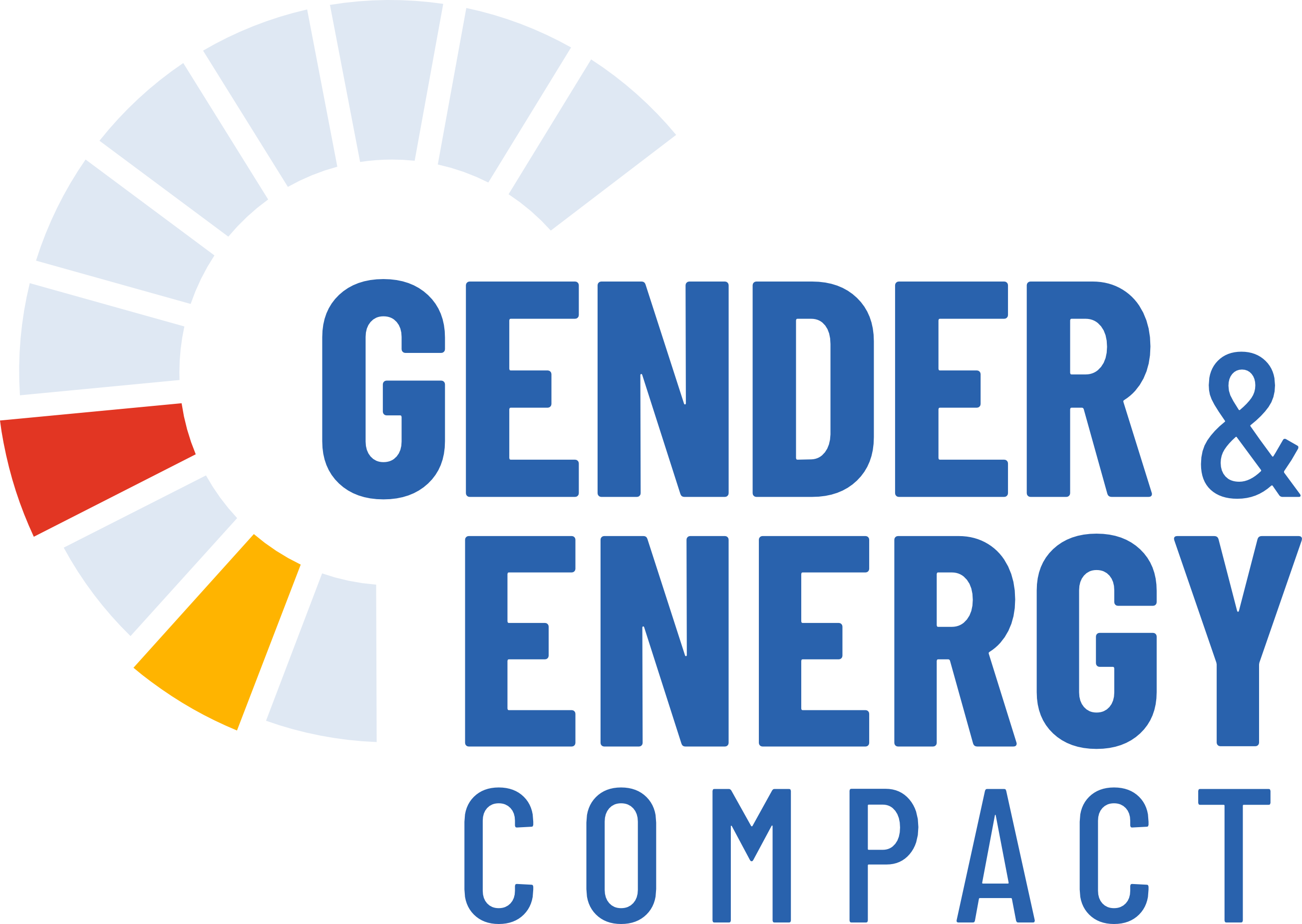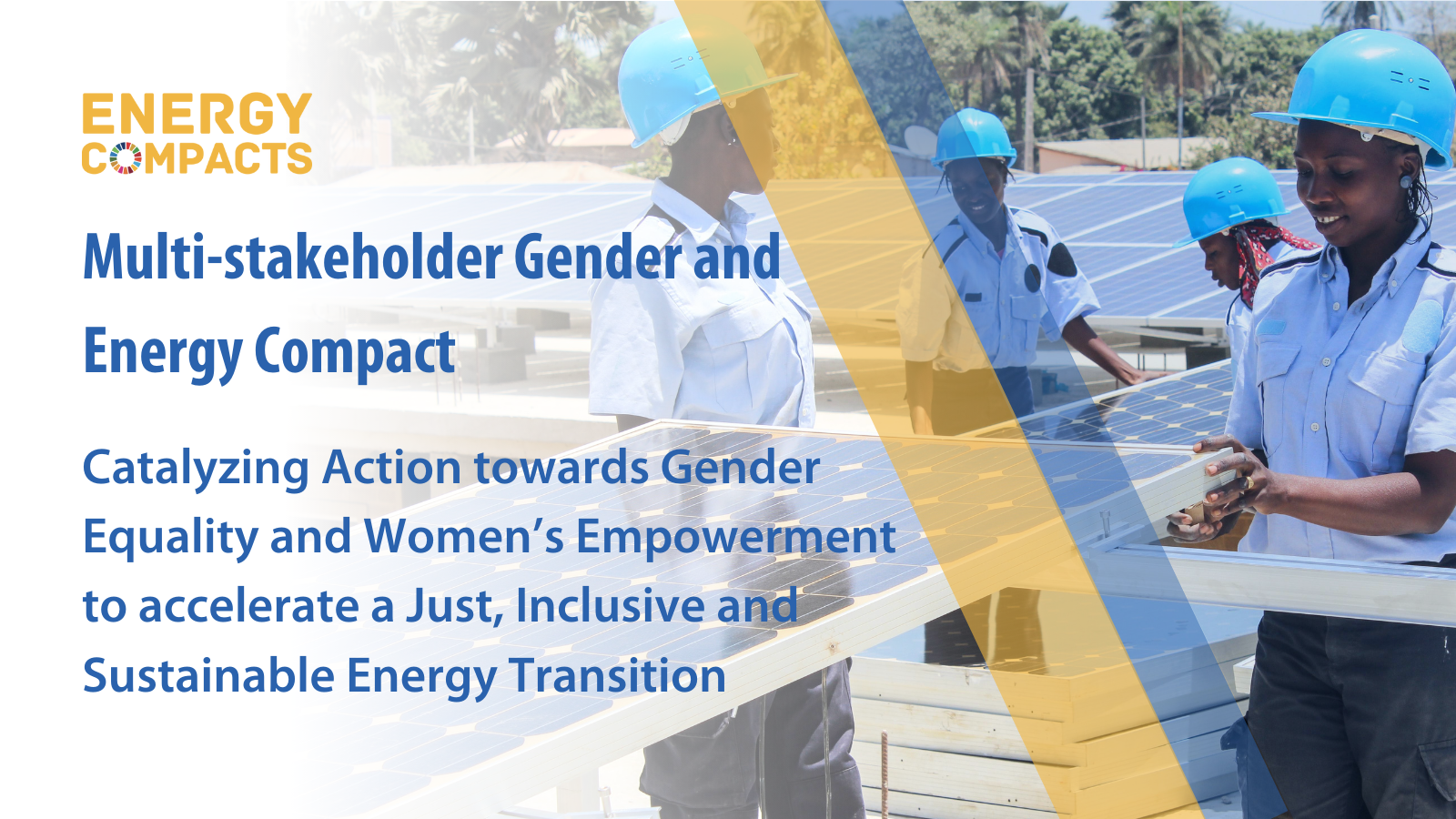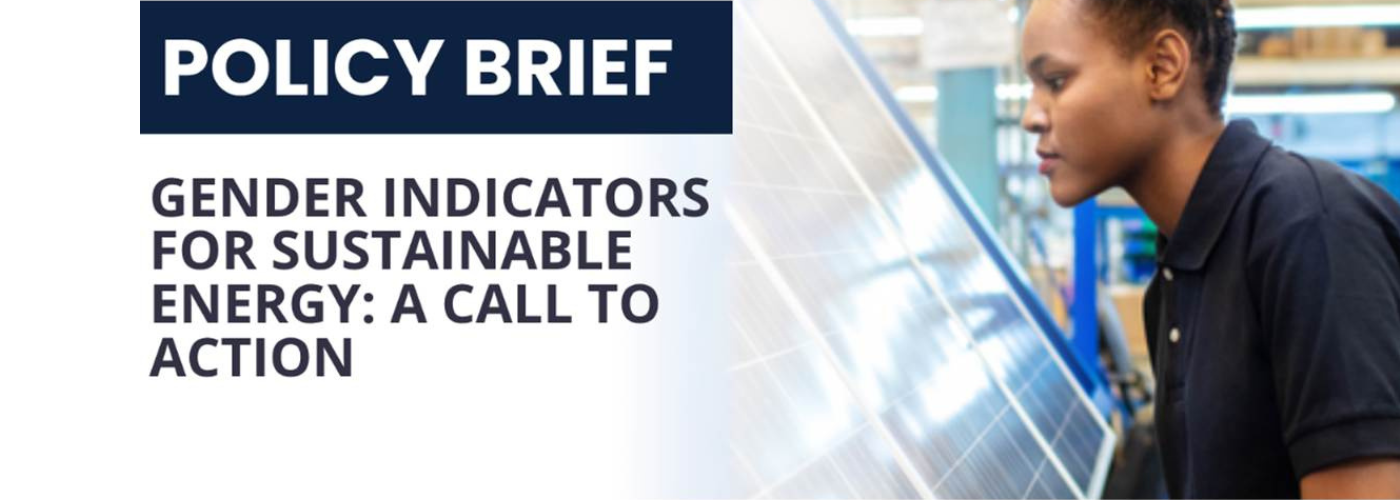The seventh annual Multi-Stakeholder Forum on Science, Technology and Innovation for the SDGs (STI Forum) will be held from 5 to 6 May 2022. It will be organized by the UN interagency task team on STI for the SDGs (IATT), convened by UN-DESA and UNCTAD, and the 10-Member Group of high-level representatives appointed by the Secretary General.
As in previous years, the theme of the STI Forum will be closely aligned with that of the High-Level Political Forum on Sustainable Development (HLPF): “Science, technology and innovation for building back better from the coronavirus disease (COVID-19) while advancing the full implementation of the 2030 Agenda for Sustainable Development”.
The Gender and Energy Compact: Catalyzing action for a just, inclusive and gender-responsive energy transition
Friday, May 6 | 7:30 am – 8:30 am EDT | 1:30 pm – 2:30 pm CEST
Register here for the 2022 STI Forum to attend this event. By registering you will also gain access to the interactive programme and all other sessions organized as part of the 2022 STI Forum. (CLOSED)
Recording available here.
Ensuring not only the consideration of women’s and girls’ needs when developing energy technology, but also women’s equal leadership along the whole energy value chain, including in designing and operating the technology for the sustainable energy transition, is central to building back better from the COVID-19 pandemic. We are at a critical juncture to secure a liveable future for all, for which we must continue to challenge power relations and address women’s differing needs, priorities and access to resources, such as energy. We need technology innovations and research driven by women to combat the climate crisis.
The event will discuss the challenges as well as opportunities of women and girls in the male-dominated energy sector and the role of STEM education for women and girls. It will also explore how multi-stakeholder platforms such as the Gender and Energy Compact can leverage cooperation on science, technology and innovation to achieve a gender-responsive sustainable energy transition.
The education and inclusion of women in the energy technology value chain provides numerous benefits to designing technology optimized for achieving the sustainable energy transition and building back better initiatives from the Covid-19 pandemic. It is, therefore, crucial to address women’s differing needs, access to resources, and priorities by women-driven innovations and research to secure a liveable future for all. More details on the event can be found in the attached concept note.










